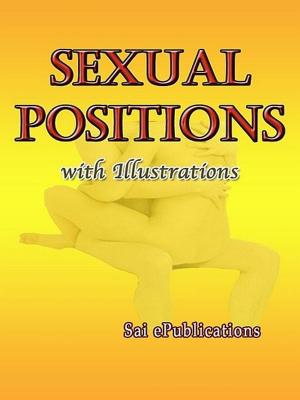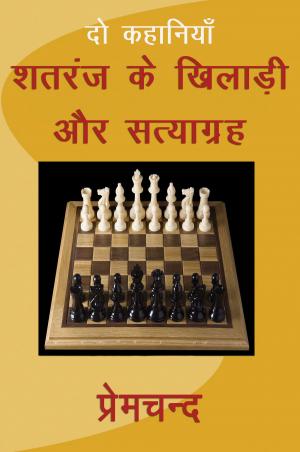| Author: | John Caird | ISBN: | 9781304548528 |
| Publisher: | Sai ePublications | Publication: | December 27, 2016 |
| Imprint: | Sai ePublications | Language: | English |
| Author: | John Caird |
| ISBN: | 9781304548528 |
| Publisher: | Sai ePublications |
| Publication: | December 27, 2016 |
| Imprint: | Sai ePublications |
| Language: | English |
“BETWIXT that knowledge which can properly be termed science, and religion a distinction in recent times has been drawn by certain acute thinkers which, if valid, would be fatal to the claim of theology or of a philosophy of a religion to be ranked among the sciences. Science, it is said, deals with nature, religion with the supernatural. But can we know anything of the supernatural, or anything, at most, beyond the bare fact that it is? Is the supernatural accessible to human intelligence in such wise that you can build up, by the rigorous processes and methods with which in our physical investigations we work, a science that can claim co-ordinate rank with astronomy, or chemistry, or biology? The answer which has been given is, No! we deny the possibility of a science of the supernatural. The fact and importance of the religious sentiment we admit. All history and our own experience tell us that there are irrepressible instincts which point to something above the domain of nature—to a realm of mystery which transcends the finite and phenomenal world. When we have done our best in the field of human knowledge, in the observation and generalisation of facts and phenomena, we know that there lies beyond, a vast, onsearchable region out of which all phenomena spring, and we recognise in this the proper sphere of the religious sentiment, of those feelings of reverence, awe, submission which are awakened in every rightly constituted mind in the presence of the unknown and inscrutable. But when you try to go further than this—to find in this region available data of knowledge, —both experience and reason pronounce the attempt to be futile. And when theologians or philosophers present us with a series of definitions, notions, detailed propositions and dogmas with reference to this world of mystery, in which the existence, personality, and interior nature of the Absolute, and its relations to the finite world, are laid down with a show of systematic precision, and we are asked to accept this pseudo-science as entitled to rank—as knowledge beside the sciences of observation and experience, we cannot admit the claim. “Natural theology,” says one eminent scientific authority, “is a science falsely so called. ... It seeks to weigh the infinite in the balance of the finite.....It is to the scientific man a delusion, to the religious man a snare.” “If,’ writes another, “ religion and science are to be reconciled, the basis of reconciliation must be this deepest, widest, and most certain of all facts—that the power the universe manifests to us is utterly inscrutable.”1 “We not only learn” by the frustration of all our efforts that the reality underlying appearance is totally and for ever inconceivable by us; but we also learn why from the very nature of our intelligence it must be so.”2 “The office of theology,” third writer declares, “is now generally recognised as distinct from that of science.....It confesses its inability to furnish knowledge with any available data. It restricts itself to the region of faith, and leaves to philosophy and science the region of inquiry.”3
Now, there is much in this view of the distinctive provinces of science and religion which we may, without giving up anything worth contending for, be ready to admit. If it means merely that the science of religion is not of the same order, dealing with the same class of objects, and reaching its results by the same method, as the physical sciences, in other words, that it is not an inductive science, this may readily be conceded. For it means no more than this, that the objects of religious knowledge cannot be perceived by the senses, or generalised out of the facts and phenomena which sense perceives. It means that God cannot be seen or touched or handled, and that by no mere generalisation from the finite could you ever reach the infinite. But if the implied assertion be that human knowledge is absolutely limited to things finite and phenomenal, that thought cannot transcend the objects which exist in space and time, and take cognisance of that which eye hath not seen, nor ear heard, nor imagination in its highest constructive efforts can conceive, and that theology and speculative philosophy, in so far as they pretend to the possession of such knowledge, are fictitious and spurious sciences, this is a view which cannot, without a surrender of the most cherished convictions, be accepted. It may be that the labour of countless thinkers in this province of inquiry has all been labour in vain, that the intellectual instincts which age after age have attracted the highest minds to it, have been mere illusion, and that the results they seem to have reached are altogether deceptive and worthless; but if this be so, the very extent and persistency of the delusion demand the most careful scrutiny of the arguments of those who claim to have exposed it.
“BETWIXT that knowledge which can properly be termed science, and religion a distinction in recent times has been drawn by certain acute thinkers which, if valid, would be fatal to the claim of theology or of a philosophy of a religion to be ranked among the sciences. Science, it is said, deals with nature, religion with the supernatural. But can we know anything of the supernatural, or anything, at most, beyond the bare fact that it is? Is the supernatural accessible to human intelligence in such wise that you can build up, by the rigorous processes and methods with which in our physical investigations we work, a science that can claim co-ordinate rank with astronomy, or chemistry, or biology? The answer which has been given is, No! we deny the possibility of a science of the supernatural. The fact and importance of the religious sentiment we admit. All history and our own experience tell us that there are irrepressible instincts which point to something above the domain of nature—to a realm of mystery which transcends the finite and phenomenal world. When we have done our best in the field of human knowledge, in the observation and generalisation of facts and phenomena, we know that there lies beyond, a vast, onsearchable region out of which all phenomena spring, and we recognise in this the proper sphere of the religious sentiment, of those feelings of reverence, awe, submission which are awakened in every rightly constituted mind in the presence of the unknown and inscrutable. But when you try to go further than this—to find in this region available data of knowledge, —both experience and reason pronounce the attempt to be futile. And when theologians or philosophers present us with a series of definitions, notions, detailed propositions and dogmas with reference to this world of mystery, in which the existence, personality, and interior nature of the Absolute, and its relations to the finite world, are laid down with a show of systematic precision, and we are asked to accept this pseudo-science as entitled to rank—as knowledge beside the sciences of observation and experience, we cannot admit the claim. “Natural theology,” says one eminent scientific authority, “is a science falsely so called. ... It seeks to weigh the infinite in the balance of the finite.....It is to the scientific man a delusion, to the religious man a snare.” “If,’ writes another, “ religion and science are to be reconciled, the basis of reconciliation must be this deepest, widest, and most certain of all facts—that the power the universe manifests to us is utterly inscrutable.”1 “We not only learn” by the frustration of all our efforts that the reality underlying appearance is totally and for ever inconceivable by us; but we also learn why from the very nature of our intelligence it must be so.”2 “The office of theology,” third writer declares, “is now generally recognised as distinct from that of science.....It confesses its inability to furnish knowledge with any available data. It restricts itself to the region of faith, and leaves to philosophy and science the region of inquiry.”3
Now, there is much in this view of the distinctive provinces of science and religion which we may, without giving up anything worth contending for, be ready to admit. If it means merely that the science of religion is not of the same order, dealing with the same class of objects, and reaching its results by the same method, as the physical sciences, in other words, that it is not an inductive science, this may readily be conceded. For it means no more than this, that the objects of religious knowledge cannot be perceived by the senses, or generalised out of the facts and phenomena which sense perceives. It means that God cannot be seen or touched or handled, and that by no mere generalisation from the finite could you ever reach the infinite. But if the implied assertion be that human knowledge is absolutely limited to things finite and phenomenal, that thought cannot transcend the objects which exist in space and time, and take cognisance of that which eye hath not seen, nor ear heard, nor imagination in its highest constructive efforts can conceive, and that theology and speculative philosophy, in so far as they pretend to the possession of such knowledge, are fictitious and spurious sciences, this is a view which cannot, without a surrender of the most cherished convictions, be accepted. It may be that the labour of countless thinkers in this province of inquiry has all been labour in vain, that the intellectual instincts which age after age have attracted the highest minds to it, have been mere illusion, and that the results they seem to have reached are altogether deceptive and worthless; but if this be so, the very extent and persistency of the delusion demand the most careful scrutiny of the arguments of those who claim to have exposed it.















